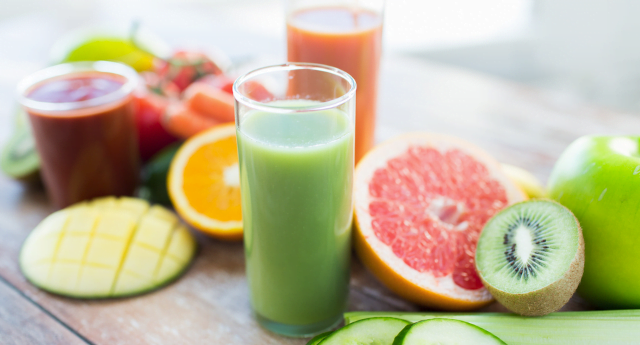Why Health and Nutrition Should Be Part of Your Sobriety Plan

There’s a tendency to justify opting for comfort foods and tasty snacks as a reward for overcoming a dependence on drugs or alcohol. In some instances, you may indulge in such goodies as you recover and transition back to a life free of dependence. While you should be congratulated for completing an Altoona substance abuse treatment program, it’s just as important to avoid the risk of trading a reliance on drugs and/or alcohol for a dependence on unhealthy foods. Your health, well-being, and nutrition habits should also be part of your sobriety plan. Here’s why.
Commonly Abused Substances Affect Nutrient Absorption
It’s not likely that proper nutrition was at the top of your list of priorities before you sought treatment for your addiction. Your addiction likely further contributed to issues with nutrient absorption. Alcohol, in particular, affects how certain nutrients are absorbed, which often results in nutritional deficiencies. Withdrawal from opiates may result in severe vomiting and diarrhea, which may contribute to nutrient deficiencies. Opiates also contribute to other issues with how food is absorbed. Stimulants act as an appetite suppressant, also resulting in nutritional shortfalls.
Healthy Eating Improves Mood and Energy
Understandably, the main concern during recovery is overcoming dependence by identifying what triggered the addictive behaviors in the first place. Still, there’s growing evidence suggesting that patients who have to nutritional therapy may see additional improvements with mood and energy level. If an emphasis on healthy eating habits continues beyond recovery and during sobriety, your increased energy may make it easier to develop new healthy habits like going for a daily walk or becoming involved in favorite sports.
Nutrients Helps with Tissue Healing
Just because you reach a point where you are mentally capable of avoiding temptations to use substances doesn’t mean any damage you may have done to your body’s tissues has been undone. Nutrients that include essential fatty acids (omega-3s), vitamin C, and magnesium play an important role in healing soft tissues. Protein is equally important in this process since it’s protein that breaks down into amino acids — the basic building blocks for all structures in your body. Recovering addicts also tend to have some degree of damage to tissues within vital organs that a nutrient-rich diet may help reverse.
Healthy Foods Boost Mental Health
It’s not unusual for addicts to have underlying mental health issues that either developed because of their dependence or contributed to it. For instance, some people turn to drugs and alcohol to deal with anxiety, stress, and depression. Consumption of certain foods stimulates the production of neurotransmitters like serotonin that affect mood in a positive way. Foods rich in B vitamins help the brain make the type of neurotransmitters with a calming effect. Whole grains, dairy products, peanuts, and lean cuts of pork and chicken are among foods naturally high in vitamins that may help improve mental health during sobriety.
Some Foods Are Natural Pain Relievers
Opiate addiction often develops due to an unintentional dependence on strong pain relievers such as fentanyl, Oxycontin, and Percocet. If you were taking such medications for legitimate pain issues, you may benefit from a diet that includes foods with natural pain-relieving properties. Numerous studies have confirmed the natural pain-fighting capabilities of foods like garlic and turmeric. Blueberries and cherries, tomatoes, fatty fish like salmon, tuna, and mackerel, nuts like walnuts and almonds, and green, leafy vegetables all have natural anti-inflammatory properties that may help reduce painful tissue swelling. Consequently, you may be able to manage your pain better during sobriety.
Blood Sugar Control Minimizes Sugar Addiction Risk
People recovering from alcohol and drug addiction sometimes develop an addiction to sugar. While often associated with alcohol addiction, sugar dependence can also develop in patients recovering from issues with other substances. The spikes in blood sugar levels can produce energy highs and lows that may make it difficult to maintain sobriety. There’s research suggesting some recovering addicts turn to sugary foods as a substitute for drugs or alcohol. Nutrition education and counseling may discourage such patterns.
Health and nutrition in sobriety also involves commitment on your part. If you need some help fine-tuning your diet and exercise plan, your doctor should be able to make suggestions appropriate for you. Dietary recommendations will also vary based on the substance that was the source of your addiction. Alcohol and opiates, for example, affect digestive health. Therefore, you may benefit from probiotic foods like yogurt and cultured vegetables such as kimchi and sauerkraut. Ultimately, making smart choices with diet will help both your body and brain heal during your sobriety.